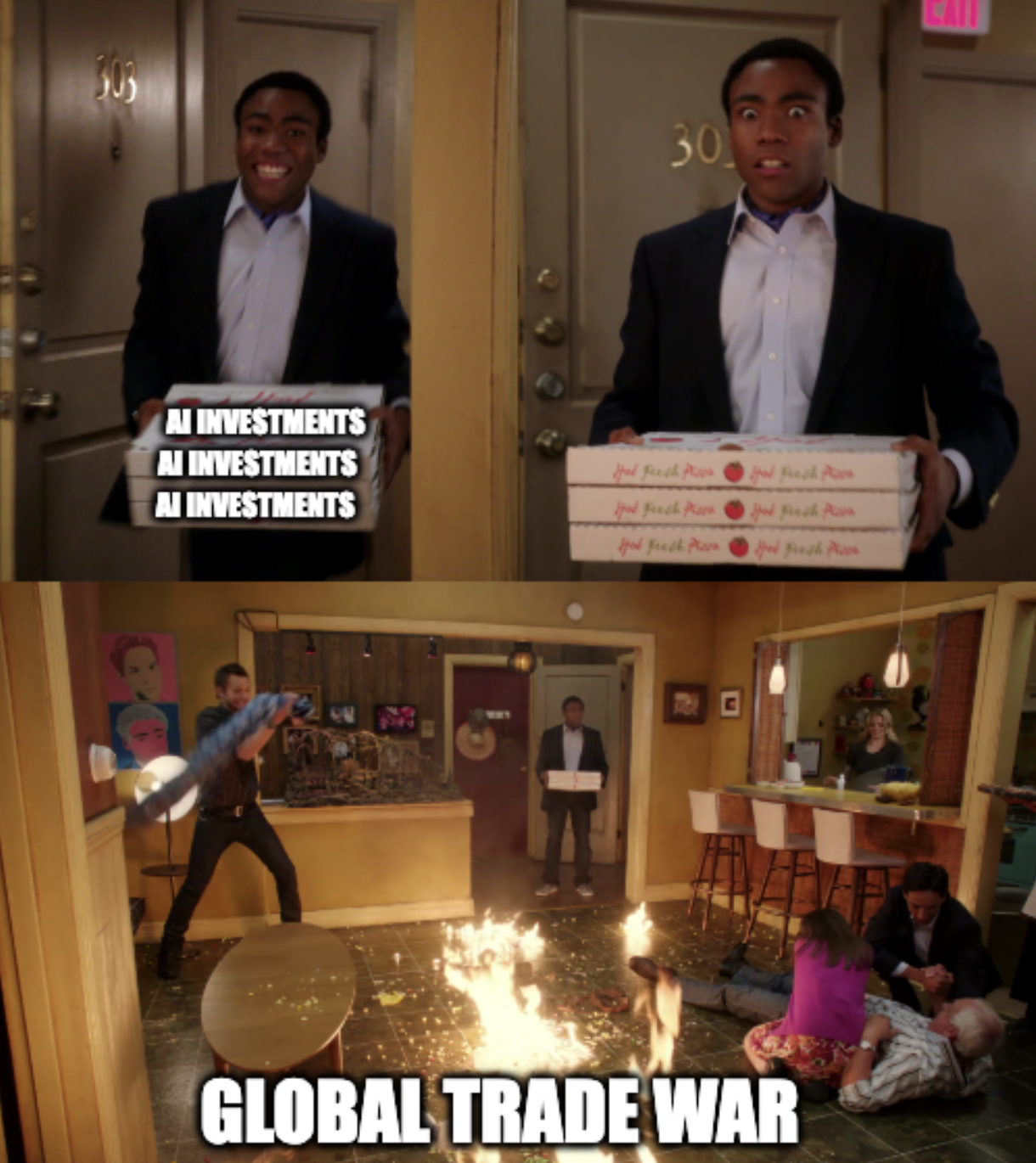Good morning. Anyone glance at their retirement accounts lately?
No? Just me? Cool.
Today’s tech news below. —Andrew Nusca
Want to send thoughts or suggestions to Data Sheet? Drop a line here.
Apple preps software revamp for iPhone, iPad, Mac

Apple is reportedly planning one of the most substantial software overhauls it’s ever made.
The company aims “to transform the interface of the iPhone, iPad and Mac for a new generation of users,” according to perennial Apple watcher Mark Gurman.
The revamp is expected “later this year” and will change the look and feel of the operating systems. It’s not just aesthetic. The overhaul will also make the OSes more consistent and simplify how users navigate their devices.
“The design is loosely based on the Vision Pro’s software,” called visionOS, sources tell Gurman. (Hmm.)
Apple owners can expect more details about the updates at Apple’s Worldwide Developers Conference, a.k.a. WWDC, in June and actual changes as part of iOS 19, iPadOS 19, and macOS 16.
But “Apple is stopping short of merging its operating systems,” Gurman notes.
The upgrade can’t come soon enough. The company’s various features under the Apple Intelligence banner have so far underwhelmed, and sales of the iPhone—Apple’s most lucrative product—uncharacteristically declined during the last holiday season.
What’s more, reports in recent years have implied that Apple’s legendarily creative design department has struggled to assert itself in an enormous public company that has grown by 100,000 employees, and several hundreds of billions in revenue, since the 2011 death of founder Steve Jobs. —AN
ServiceNow buys Moveworks for $2.85 billion
ServiceNow will acquire business process automation company Moveworks for $2.85 billion in cash and stock.
The Silicon Valley IT software giant—which competes with Salesforce, Microsoft, and Google and is headquartered about 10 miles down the road from Moveworks—framed the acquisition around the burgeoning market for AI agents that can perform digital tasks for people, often involving the use of other software.
With about 500 employees, Moveworks was last valued at $2.1 billion in 2021. ServiceNow is publicly traded and currently valued at about $175 billion.
Enterprise search tools have also emerged as an important new battleground among software companies in the AI age. Finding the right data from within a company’s knowledge base helps reduce the chance that AI models will make up false information, or “hallucinate.” It also allows AI agents to more accurately and effectively perform tasks.
ServiceNow said the deal will allow it to combine its own agentic AI and automation capabilities with Moveworks’ AI assistant. The acquiring company touted Moveworks’ prowess in providing AI-based search tools that allow organizations to find information within their own large data pools.
Gina Mastantuono, ServiceNow’s president and chief financial officer, told Fortune that while ServiceNow’s AI agents primarily automate specific back-end tasks, Moveworks had built an “elegant front-end” AI assistant that can perform a wide range of different tasks.
More than 90% of the customers that use Moveworks’ AI assistant have rolled it out to their entire workforce—a reach into the employee base that Mastantuono said was attractive to ServiceNow. —Jeremy Kahn
Elon Musk stumbles, Tesla stock tumbles
Yesterday was not a great day to be Elon Musk.
Tesla’s share price fell by 15%, leaving the stock with less than half of the value it held in mid-December. It was a gruesome day in general, with the Nasdaq plummeting by over 4%—President Trump’s tariff chaos is threatening a recession—but Tesla was a particularly notable loser.
This probably had something to do with UBS lowering its Tesla price target on the basis of soft demand. Musk’s far-right activism has been turning off buyers, and the company has an ongoing issue with heavy competition in China.
As Business Insider reported, Tesla’s investors are finally displaying their disgruntlement and making the quite reasonable observation that maybe their CEO should be spending a bit more time paying attention to the company’s needs.
But Musk is a busy man. X suffered widespread disruptions during the day around the world, and its owner blamed the snafu on what he claimed was a massive cyberattack.
“We get attacked every day, but this was done with a lot of resources,” he tweeted, suggesting that a “large, coordinated group” or country was behind it.
Musk has made such claims before, notably when technical problems delayed a chat between himself and Trump last year, so the key thing to look out for here is actual evidence of a distributed denial-of-service attack—last time, there was none. —David Meyer
More data
—Asana CEO Dustin Moskovitz retires. The co-founder will stay on until a new CEO is named. Shares dropped 25% in after-hours trading.
—CoreWeave, OpenAI signs infrastructure deal. Five years, $11.9 billion, hundreds of millions’ worth of shares at Coreweave’s IPO.
—Meta, Apple will likely face fines. Modest penalties for allegedly breaching the EU's DMA.
—Microsoft preps Xbox gaming handheld. The device is reportedly planned for launch later this year.
—IBM won’t pay $1.6 billion award. The U.S. Supreme Court refused to hear BMC Software’s appeal of a ruling that tossed out the penalty for IBM allegedly poaching a client in violation of a licensing agreement.
—AI tools fail at citing news articles. A Columbia study of eight major ‘bots found incorrect news citations in 60% or more prompt results.
—Liang Wenfeng resists DeepSeek investors, fearing unwanted influence and government links.













